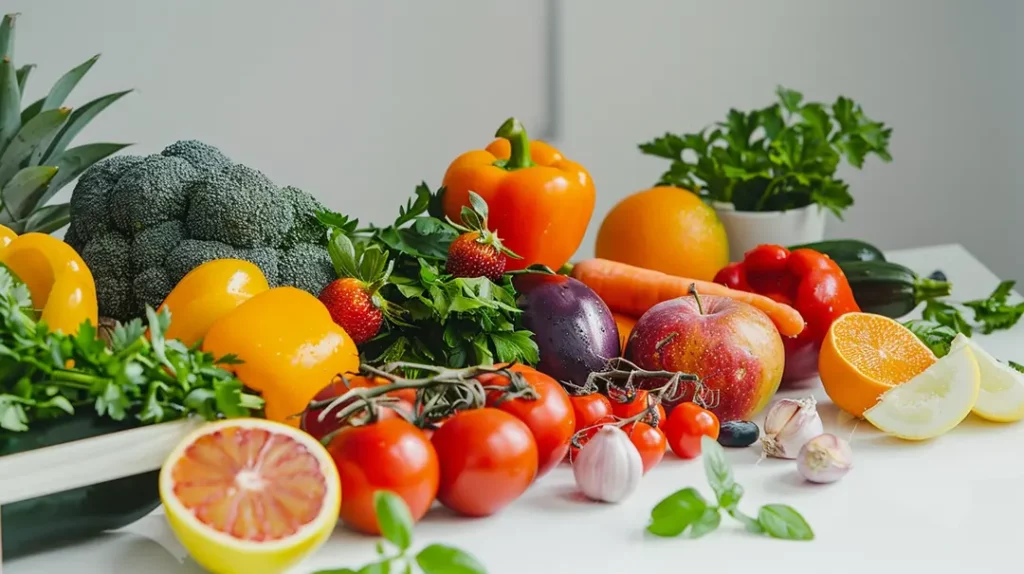
Juicing can boost nutrient intake, but it's essential to do it mindfully. Learn time-saving hacks, balance nutrition, and discover the power of antioxidants in popular juices.
Juicing has become a popular health trend. The idea of condensing the nutrients from fruits and vegetables into a convenient, drinkable form appeals to many. This practice can indeed boost your nutrient intake, but it’s crucial to juice mindfully to maximize benefits.
Key takeaway: Juicing can be an effective way to increase nutrient intake, but it’s important to do it mindfully.
In this article, you’ll learn:
Dive in and discover how you can streamline your juicing process and enhance your overall health.
Juicing can significantly boost your intake of essential nutrients, including vitamins, minerals, and antioxidants. When you juice fruits and vegetables, you extract the liquid containing most of the vitamins and minerals found in the produce. This makes it easier to consume a larger quantity of nutrients in a single glass.
While juicing increases nutrient concentration, it’s important to compare it with whole fruits and vegetables:
For instance, carrot juice is packed with beta-carotene, an antioxidant that converts to vitamin A and supports eye health. Spinach juice offers a rich supply of iron and folate, while citrus juices brim with vitamin C, known for boosting the immune system.
Antioxidants play a crucial role in protecting your body from oxidative stress. Some standout examples include:
Incorporating these nutrient-dense juices into your diet can enhance your overall well-being by providing an efficient way to consume more vitamins, minerals, and antioxidants.

Living a busy lifestyle doesn’t mean sacrificing nutrition. Juicing presents a quick solution for those with packed schedules, ensuring you get your daily dose of vitamins and minerals without the hassle.
Spend an hour or two on weekends to prep your juices for the week. Store them in airtight containers and refrigerate to maintain freshness.
Chop up your fruits and vegetables beforehand. This makes it faster to toss them into the juicer when you’re short on time.
Freeze portioned bags of mixed ingredients. When you’re ready, just thaw and juice.
The right tools can drastically reduce your juicing time:
Juicing can fit seamlessly into even the busiest of schedules with these hacks, ensuring convenience without compromising on health benefits.
Fresh juices play a significant role in supporting natural detox processes and boosting immune function. The liver, which is crucial for detoxification, benefits immensely from nutrient-rich juices.
Certain ingredients stand out for their detoxifying properties:
For enhancing immunity, look no further than these potent fruits and vegetables:
By incorporating these ingredients into your juicing routine, you can naturally support your body’s detox systems while giving your immune system a powerful boost.
Juicing can support weight management by providing a low-calorie, nutrient-dense alternative to high-calorie snacks. Nutrient density is critical as it ensures you get essential vitamins and minerals without excessive calories. This way, you can manage cravings and maintain satiety throughout the day.
When considering weight loss, juicing can be effective as part of a balanced diet. Fresh juices, especially those made from vegetables, are typically low in calories yet rich in essential nutrients. This combination helps you feel full while consuming fewer calories, which is crucial for weight loss.
Replacing high-calorie snacks with nutrient-rich juices can make a significant difference. Here are a few tips:
Incorporating these strategies helps manage weight more effectively while ensuring you get the necessary nutrients to stay healthy.
One significant downside of juicing is the removal of fiber. Fiber is crucial for digestive health as it helps regulate bowel movements and maintain a healthy gut microbiome. Without fiber, you might miss out on these essential benefits, potentially leading to digestive issues.
High-sugar fruit juices can spike blood sugar levels, which is particularly concerning for individuals with diabetes or those watching their sugar intake. When juicing, it’s advisable to focus on low-sugar vegetables and limit high-sugar fruits to avoid these spikes.
While juices can be nutrient-dense, they also pack calories. Drinking multiple servings can lead to an unintended calorie surplus. Being mindful of portion sizes ensures that juicing complements rather than hinders your dietary goals.
Juicing should be viewed as a supplement rather than a replacement for whole foods. Whole fruits and vegetables offer a balanced array of nutrients, including fiber, which you miss out on when you juice. Strive to incorporate juices into a broader diet that includes plenty of whole foods.
By being aware of these potential downsides and practicing mindful juicing, you can enjoy the benefits without compromising your overall health.
Adopting mindful practices in juicing can significantly enhance your journey towards a healthy lifestyle. By being aware of what goes into your juice, you ensure that you’re not just consuming liquid calories but a nutrient-rich diet.
Juicing should be seen as a supplement to whole foods and not a replacement. This approach helps maintain the essential balance of fibre, protein, and fats needed for optimal health.
Enjoying the journey towards better health through juicing involves experimenting with different fruits and vegetables, discovering new flavours, and paying attention to how these juices make you feel. It’s about finding joy in each sip and knowing that you’re making choices that benefit your body.
Embrace mindful eating by incorporating juices that support your overall wellness goals while savouring the process. Cheers to a healthier, more vibrant you!

At Med.kitchen, our passion lies in crafting exceptional culinary experiences through our online platform. We specialise in sharing a wealth of knowledge via articles, recipes, courses, and online mentoring, aiming to inspire both novice and seasoned chefs alike. Our focus has shifted from private dining to being an online source of gastronomic inspiration, allowing you to explore and refine your culinary skills from the comfort of your home..